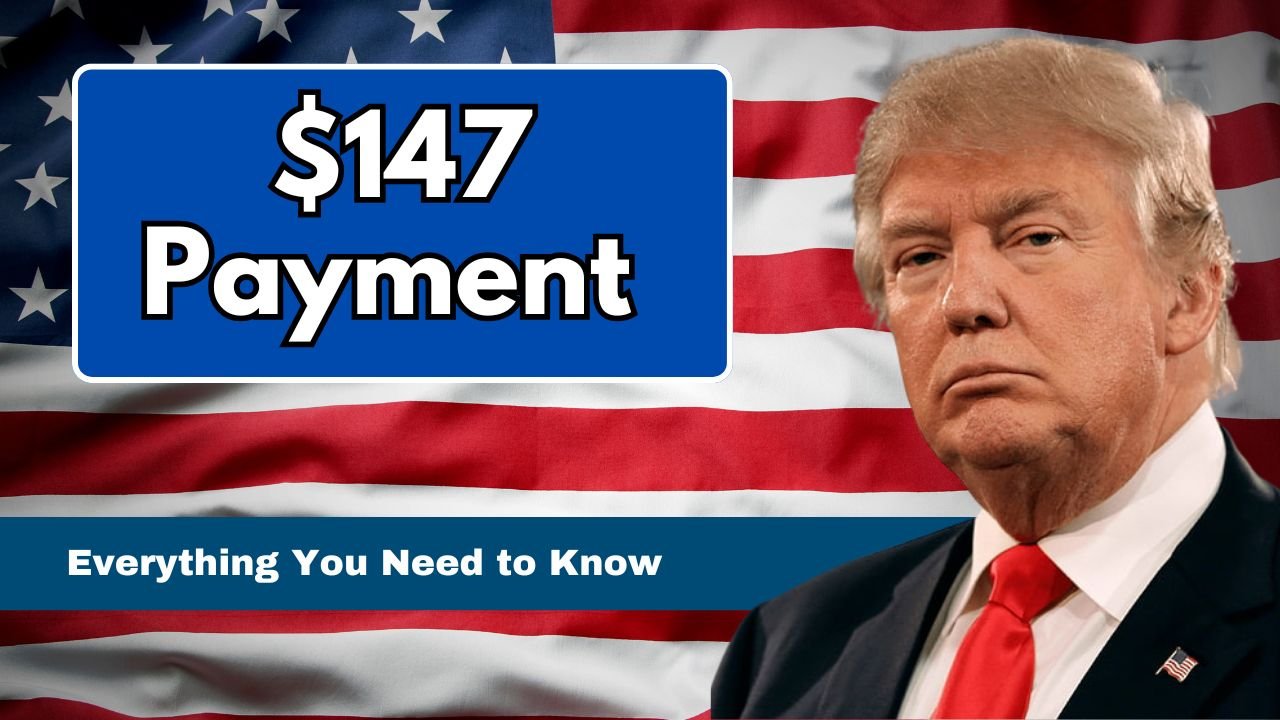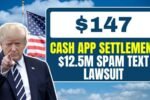In a world where smartphones and digital payment platforms dominate daily life, convenience has come at a cost. While technology has transformed how we send money, shop, and communicate, it has also opened doors to privacy violations and unsolicited marketing. One of the latest examples involves Cash App, a widely used mobile payment service in the United States, which has agreed to a $12.5 million settlement over allegations of sending spam text messages without permission.
This legal agreement paves the way for eligible individuals to receive a $147 Payment, making it a significant case in the fight for digital privacy rights. Let’s dive deep into how this case unfolded, who qualifies, how to claim, and why it matters for consumers.
How Did the Cash App Spam Text Case Begin?
Between 2018 and 2023, numerous U.S. residents reported receiving unsolicited promotional and referral messages from Cash App. These texts were allegedly sent without the recipients’ consent, and in many cases, people had never even downloaded the app or expressed any interest in joining.
This alleged conduct violated the Telephone Consumer Protection Act (TCPA), a federal law that prohibits sending commercial messages to consumers without prior permission. As complaints mounted, attorneys filed a class action lawsuit representing thousands of affected individuals.
The case quickly became a point of discussion in the media, raising awareness about how digital platforms sometimes exploit user data or bypass consent. For those impacted, the outcome could mean receiving up to a $147 Payment as part of the settlement.
Cash App’s Response: Settlement Without Admission of Fault
While the lawsuit moved forward, Cash App maintained that it did not admit any wrongdoing. Instead, like many companies facing public scrutiny, it chose to settle the matter to avoid prolonged litigation and further damage to its reputation.
By agreeing to pay $12.5 million, the company aimed to resolve claims quickly and give eligible consumers financial relief. This settlement does not legally establish guilt, but it reflects the company’s decision to prioritize resolution over a drawn-out court battle.
For affected users, this decision opens the door to a $147 Payment, depending on the number of valid claims filed.
Who Can Claim the $147 Payment?
The settlement outlines clear eligibility criteria. You may qualify for the $147 Payment if you meet any of the following conditions:
-
You received unsolicited promotional or referral text messages from Cash App or its agents between 2018 and 2023.
-
You never provided consent to receive such messages.
-
You were not a registered Cash App user during the period when you received these messages.
-
You have submitted, or plan to submit, a valid claim form through the official settlement website.
Even if you cannot recall the exact date you received these messages, providing as much detail as possible in your claim can help ensure you qualify for the $147 Payment.
Also Read – Maruti Vitara Brezza: Stylish, Efficient, and Feature-Packed Compact SUV for Indian Roads
How and When Will You Receive the $147 Payment?
The total settlement fund of $12.5 million will be divided among all approved claimants after deducting legal fees, administrative expenses, and court costs. While the advertised maximum payout is $147, the exact amount you receive may vary depending on how many people file claims.
Step-by-Step Claim Process:
-
Visit the official settlement website and locate the claim submission page.
-
Fill in your personal information, including name, address, email, and mobile number.
-
Describe your experience, noting when you received the spam text and confirming you did not give consent.
-
Attach proof if available (screenshots, call logs, or message records). While proof is not mandatory, it can strengthen your case.
-
Select your payment method – direct deposit or paper check.
-
Submit the form before the deadline to secure your eligibility for the $147 Payment.
Payments are expected to be processed within a few months after the court grants final approval of the settlement.
Restrictions: Who Cannot Claim?
The $147 Payment is strictly available to U.S. residents. If you live in India, Canada, the UK, or any other country outside the U.S., you are not eligible, even if you received similar messages.
This limitation is clearly outlined in both the official court notice and the settlement terms, ensuring that only affected U.S. consumers benefit from the case.
Why This Case Matters: Protecting Digital Rights
Beyond the financial relief of a $147 Payment, this case serves as a powerful reminder about digital consent and privacy. It highlights that:
-
Companies must obtain explicit permission before contacting consumers for promotional purposes.
-
Consumers have the right to take legal action when their privacy is violated.
-
Class action lawsuits can be an effective way for large groups to seek justice and compensation collectively.
This settlement reinforces the importance of holding companies accountable when they misuse consumer contact information.
Understanding Class Action Lawsuits
A class action lawsuit allows one or more individuals to file a case on behalf of a larger group with similar grievances. The advantages include:
-
Efficiency – Multiple claims are handled in a single legal process.
-
Collective power – Large groups can exert more pressure on companies to settle or change their practices.
-
Equal compensation – Eligible members of the class receive the same settlement benefits, such as the $147 Payment in this case.
For Cash App users and non-users alike who were affected, joining this class action has provided a straightforward way to seek justice.
Impact on Cash App’s Brand Image
While Cash App remains a popular payment platform in the United States, this settlement has inevitably impacted its public image. Trust is critical in the digital finance industry, and even without admitting wrongdoing, the company’s decision to settle suggests a desire to avoid prolonged negative publicity.
For consumers, the $147 Payment is not only compensation but also a symbolic acknowledgment that their privacy matters. For companies, this case is a clear warning: ignoring consent can lead to costly legal consequences.
Broader Lessons for Consumers
The Cash App case offers several lessons for all digital platform users:
-
Read terms and conditions before signing up for any service.
-
Monitor unsolicited messages and keep records in case of future disputes.
-
Exercise your legal rights – join class actions when eligible to claim payments like the $147 Payment.
-
Stay informed about privacy laws such as the TCPA that protect you from unwanted communication.
These practices can help you safeguard both your digital security and your financial interests.
Conclusion: More Than Just a $147 Payment
At its core, this settlement is about more than money—it’s about defending consumer rights in the digital era. While the $147 Payment is a welcome benefit for those affected, the real victory is the precedent it sets for corporate accountability.
If you qualify, filing your claim is a simple way to ensure you receive your share of the settlement. And if you don’t, this case still serves as a timely reminder to remain vigilant, know your rights, and take action whenever your privacy is compromised.
FAQs
Q1: Who is eligible for the $147 Payment?
Anyone in the U.S. who received unsolicited Cash App promotional or referral texts between 2018 and 2023 without prior consent.
Q2: How much will I get?
The maximum payout is $147, but the exact amount depends on the total number of valid claims.
Q3: How do I file a claim?
Submit a claim form on the official settlement website, provide your details, and choose your payment method.
Q4: Is proof required?
Not mandatory, but screenshots or message records can strengthen your claim.
Q5: Can people outside the U.S. claim?
No. The settlement is only for U.S. residents.
Maruti Launches Mini Range Rover SUV at ₹6 Lakh – Where Mileage Meets Style
Some Important Link
| Download News APP | Click Here |
| WhatsApp Group | Click Here |
| Home Page | Click Here |





